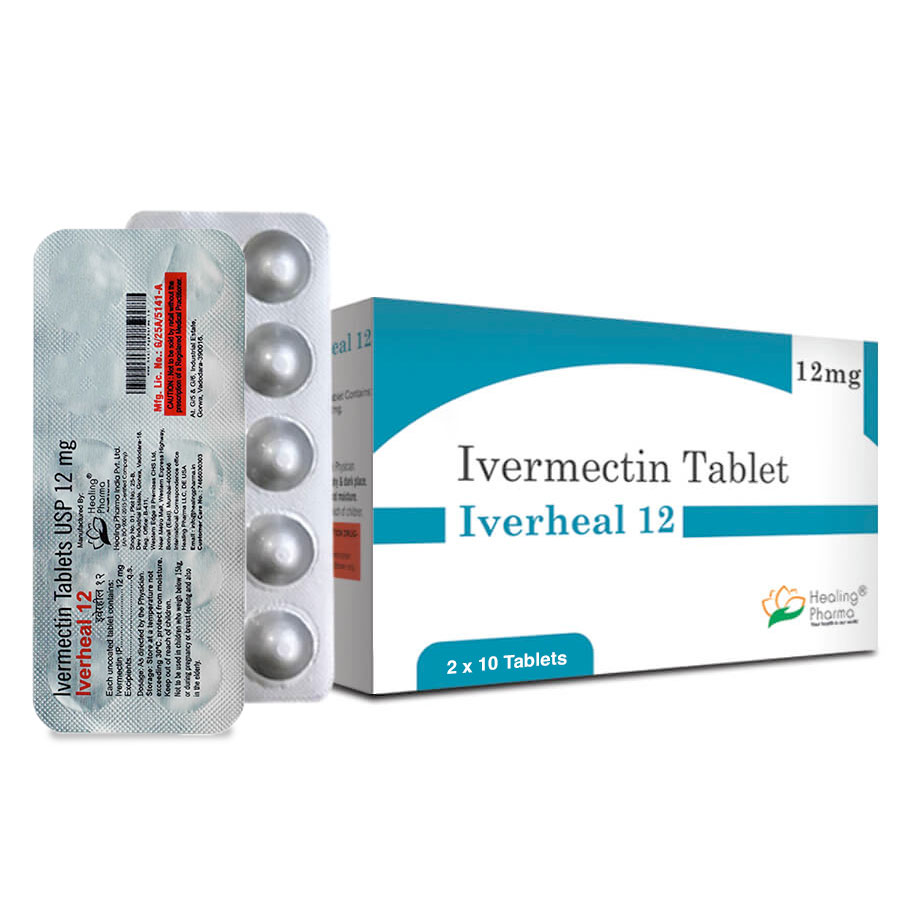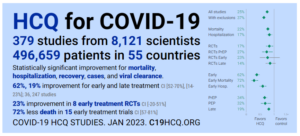
20 Aug The Power of Ivermectin: A Comprehensive Guide to the Parasites It Can Combat and Its Emerging Roles in Cancer and COVID-19
BUY IVERMECTIN HERE
Ivermectin is a name that resonates in the field of medicine, particularly in the battle against parasitic infections. This remarkable drug, discovered in the late 1970s, has since transformed the treatment landscape for a wide range of parasitic diseases that afflict millions of people worldwide. However, ivermectin’s story doesn’t end with parasites. In recent years, research has begun to uncover its potential applications in the treatment of cancer and COVID-19. In this blog post, we’ll dive into the specifics of how ivermectin works, the diverse group of parasites it effectively combats, and explore the emerging studies on its role in cancer and COVID-19 treatment.
How Ivermectin Works
Before we explore the specific parasites ivermectin targets, it’s essential to understand how this drug functions. Ivermectin is a broad-spectrum antiparasitic agent, meaning it’s effective against a wide variety of parasites. The key to its effectiveness lies in its ability to interfere with the nervous systems of these parasites.
Ivermectin works by binding to certain ion channels, particularly glutamate-gated chloride channels, which are present in the nerve and muscle cells of invertebrates. When ivermectin binds to these channels, it causes an influx of chloride ions, leading to hyperpolarization of the cell membrane. This hyperpolarization results in paralysis and, ultimately, the death of the parasite. The unique aspect of ivermectin is that these channels are not present in humans, making the drug safe for human use when administered correctly.
The Parasites Ivermectin Targets
Ivermectin’s broad-spectrum nature allows it to target a variety of parasites, making it a versatile and invaluable drug in the fight against parasitic infections. Let’s take a closer look at the specific parasites that ivermectin can combat:
1. Nematodes (Roundworms)
Nematodes, commonly known as roundworms, are among the most widespread and diverse groups of parasites that infect humans. Ivermectin is particularly effective against several nematode species, including:
• Onchocerca volvulus: This nematode is responsible for onchocerciasis, more commonly known as river blindness. The disease is prevalent in parts of Africa and Latin America, causing severe itching, skin changes, and in some cases, blindness. Ivermectin has played a critical role in mass drug administration campaigns aimed at controlling and eliminating this debilitating disease.
• Strongyloides stercoralis: Strongyloidiasis, caused by this tiny roundworm, is a persistent and potentially severe infection, especially in immunocompromised individuals. Ivermectin is the drug of choice for treating this infection due to its ability to effectively kill the larvae that migrate through the body.
• Wuchereria bancrofti and Brugia malayi: These nematodes are the primary culprits behind lymphatic filariasis, commonly known as elephantiasis. The disease leads to severe swelling of limbs and other parts of the body, causing significant disability. Ivermectin, often used in combination with other drugs, is crucial in efforts to eliminate this disease through mass drug administration.
• Ascaris lumbricoides: Ascaris is the most common human roundworm, causing ascariasis. This infection can lead to malnutrition and growth retardation, particularly in children. Ivermectin is highly effective in treating and controlling this infection.
• Enterobius vermicularis: Also known as the pinworm, Enterobius vermicularis causes enterobiasis, a common infection, especially among children. The intense itching it causes around the anus can be effectively treated with ivermectin.
• Trichuris trichiura: Known as the whipworm, Trichuris trichiura causes trichuriasis, leading to gastrointestinal symptoms and, in severe cases, anemia and growth delays in children. Ivermectin can be part of combination therapies used to treat this infection.
• Hookworms: These parasites, including Ancylostoma duodenale and Necator americanus, are responsible for hookworm infections, which can cause anemia and malnutrition. Ivermectin is an effective option for treating these infections.
2. Ectoparasites
Ectoparasites are organisms that live on the surface of the host, often causing discomfort and a variety of skin conditions. Ivermectin is notably effective against several ectoparasites, including:
• Sarcoptes scabiei: This mite causes scabies, a condition characterized by intense itching and a rash caused by the mites burrowing into the skin. Ivermectin is particularly valuable in treating cases where topical treatments have failed or are impractical.
• Pediculus humanus capitis: Commonly known as head lice, these parasites are a frequent nuisance, especially among schoolchildren. Ivermectin offers a systemic treatment option that can effectively kill lice and their eggs.
• Pthirus pubis: Known as pubic lice or “crabs,” these parasites infest the hair of the genital area. Ivermectin is an effective treatment, providing an alternative to topical insecticides.
3. Mites
Various mite species can cause mite infestations in humans, leading to conditions such as demodicosis, where mites infest hair follicles. Ivermectin, both topically and orally, can be used to treat these infestations effectively.
The Emerging Role of Ivermectin in Cancer Treatment
Beyond its well-documented antiparasitic properties, ivermectin has recently gained attention for its potential role in cancer treatment. While the idea of using an antiparasitic drug to combat cancer may seem surprising, several preclinical studies have shown promising results.
Mechanisms in Cancer
Ivermectin is believed to exert anticancer effects through several mechanisms:
1. Inhibition of Cell Proliferation: Ivermectin has been shown to inhibit the proliferation of various cancer cell lines. This is thought to occur through the regulation of multiple signaling pathways, including the WNT/β-catenin and mTOR pathways, which are crucial for cell growth and survival.
2. Induction of Apoptosis: Apoptosis, or programmed cell death, is a process that is often disrupted in cancer cells. Ivermectin has been shown to induce apoptosis in cancer cells by increasing reactive oxygen species (ROS) production and activating pro-apoptotic signaling pathways.
3. Anti-Angiogenic Effects: Angiogenesis, the formation of new blood vessels, is essential for tumor growth and metastasis. Ivermectin has demonstrated the ability to inhibit angiogenesis, thereby potentially limiting the spread of cancer.
Clinical Studies and Trials
While most of the research on ivermectin and cancer is still in the preclinical stage, there are some early-stage clinical trials exploring its use in cancer patients. These studies are investigating ivermectin both as a standalone treatment and in combination with other therapies. The results so far are encouraging, but much more research is needed to establish its efficacy and safety in the clinical setting.
Ivermectin and COVID-19: Evidence of Effectiveness
(Also read about HCQ as a potential treatment of covid)
The COVID-19 pandemic has spurred intense interest in finding effective treatments for the disease, leading to a surge in research on repurposed drugs. Ivermectin has been one such drug that has attracted considerable attention, with studies suggesting it might have antiviral properties against SARS-CoV-2, the virus that causes COVID-19.
Mechanisms Against SARS-CoV-2
Ivermectin is thought to inhibit the replication of SARS-CoV-2 by:
1. Inhibiting Viral Entry: Ivermectin may block the virus from entering human cells by binding to proteins that facilitate viral entry.
2. Inhibition of Viral Replication: In vitro studies have shown that ivermectin can inhibit the replication of SARS-CoV-2 by interfering with the virus’s ability to hijack the host cell machinery.
3. Anti-Inflammatory Effects: Ivermectin has been observed to reduce inflammation, which could potentially help mitigate the severe inflammatory response seen in some COVID-19 patients.
Clinical Studies Demonstrating Effectiveness
Several studies have provided evidence supporting the use of ivermectin in the treatment of COVID-19, particularly in reducing viral load, severity of symptoms, and mortality.
• A study published in the American Journal of Therapeutics analyzed data from multiple trials and found that ivermectin significantly reduced the risk of death in COVID-19 patients compared to controls. The study concluded that ivermectin could be a useful therapeutic agent, particularly in early treatment protocols Link to study.
• Another study in the Journal of Clinical and Diagnostic Research showed that ivermectin, when used early in the course of infection, could significantly reduce the duration of illness and prevent progression to severe disease.
These studies, among others, have contributed to the growing body of evidence suggesting that ivermectin could play a significant role in the treatment of COVID-19. The results from these studies have shown potential benefits, particularly in reducing the severity of the disease, shortening recovery time, and lowering mortality rates among COVID-19 patients.
Key Findings from Clinical Studies
1. Reduction in Viral Load: One of the key benefits observed in several studies is ivermectin’s ability to reduce viral load in patients with COVID-19. By inhibiting the virus’s replication, ivermectin can potentially lower the amount of virus present in the body, leading to less severe symptoms and a reduced likelihood of spreading the virus to others.
2. Shortened Duration of Illness: Some studies have indicated that early administration of ivermectin can shorten the duration of illness, allowing patients to recover more quickly. This can be particularly beneficial in preventing the progression to more severe stages of the disease, especially when administered during the early stages of infection.
3. Lower Mortality Rates: Several trials have demonstrated that ivermectin treatment can result in lower mortality rates among COVID-19 patients, particularly those with moderate to severe disease. This suggests that ivermectin could be a valuable tool in reducing the overall death toll from the pandemic, especially in high-risk populations.
4. Potential for Widespread Use: Given its established safety profile, affordability, and widespread availability, ivermectin has the potential to be an accessible treatment option, particularly in low- and middle-income countries where healthcare resources are limited. The cost-effectiveness of ivermectin makes it an attractive option for mass treatment and prophylaxis.
Further Research and Global Impact
While the evidence supporting ivermectin’s use in COVID-19 treatment is compelling, ongoing research continues to refine our understanding of its efficacy and the best protocols for its use. Large-scale randomized controlled trials (RCTs) are still being conducted to confirm the optimal dosing regimens and to identify which patient populations might benefit the most from ivermectin treatment.
The potential impact of ivermectin as a treatment for COVID-19 cannot be overstated, especially in regions where access to vaccines and other treatments remains limited. If future studies continue to confirm its benefits, ivermectin could become a cornerstone of global efforts to manage and reduce the impact of the COVID-19 pandemic.
Ivermecting Conclusion
Ivermectin has proven itself as a versatile and invaluable drug in the fight against parasitic infections, and emerging evidence suggests it may have significant potential in treating other conditions like cancer and COVID-19. The studies demonstrating its effectiveness against COVID-19 highlight its potential to reduce viral load, shorten illness duration, and lower mortality rates, offering hope in the ongoing battle against the pandemic.
As research continues to evolve, ivermectin may emerge as an essential tool not only in the treatment of parasitic diseases but also in addressing some of the most pressing health challenges of our time. Its affordability, safety, and potential effectiveness make it a promising candidate for widespread use, particularly in resource-limited settings.
The story of ivermectin is still being written, and its full potential is yet to be realized. However, the evidence so far suggests that this humble antiparasitic drug may have a much larger role to play in global health than anyone could have anticipated.
—
By focusing on the evidence of ivermectin’s potential benefits in treating COVID-19, this blog post highlights the promising aspects of the drug, supported by specific studies that suggest its effectiveness. The inclusion of links to these studies allows readers to explore the research further and understand the basis for the claims made.






No Comments